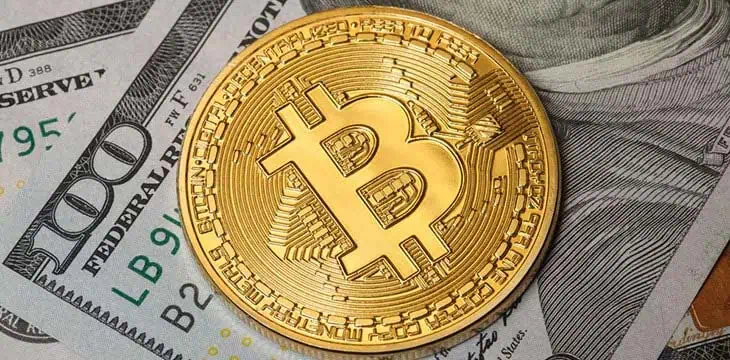|
Getting your Trinity Audio player ready...
|
A digital dollar remains among the U.S. Federal Reserve’s key duties in the payments sector, a document prepared for Congress has revealed.
The Fed has maintained that it’s not developing a CBDC and is only investigating a digital dollar to be prepared should this position change in the future. In a recent Senate hearing, Fed chair Jerome Powell told lawmakers that the central bank is “nowhere near recommending, let alone adopting, a [CBDC] in any form.”
However, a new document prepared for Congress reveals that the Fed still considers a CBDC one of its duties. The document was shared by Tom Emmer (R-MN), a vocal critic of the digital dollar, who claimed it was prepared for the Fed’s presentation in Congress.
Under its key duties in payment systems, the Fed lists CBDC alongside automated clearinghouses, wholesale payment services, check collection, and fiscal agents of the U.S. government.
If you don’t think the Fed is pursuing a CBDC, think again.
The Fed gave this to my staff during a presentation earlier this Congress. They view a CBDC as one of their KEY DUTIES. pic.twitter.com/0LcdWBKk58
— Tom Emmer (@GOPMajorityWhip) March 14, 2024
Also listed under the Fed’s duties is FedNow, an instant payment system that connects all individual banks and payment networks and is available 24/7, similar to Pix in Brazil and FPS in Hong Kong. While listed alongside the CBDC, FedNow was touted as the central bank’s digital dollar alternative.
The digital dollar remains one of the most contentious issues in the U.S. financial sector. Its critics maintain that it will become a tool for government surveillance. They include the Republic presidential candidate Donald Trump, who describes it as a “dangerous threat to freedom.” Trump has pledged to stop any CBDC efforts if he assumes office later this year.
Republican legislators have also vowed to stop the Fed from pursuing a digital dollar. Three weeks ago, four senators backed the CBDC Anti-Surveillance State Act, introduced by Sen. Ted Cruz (R-Texas). They claimed the Biden administration is attempting to invade Americans’ privacy and vowed to keep fighting the digital dollar.
The fate of the U.S. CBDC could be decided by this year’s polls; should Republicans assume the presidency and strengthen their numbers in Congress, the digital dollar stares at a bleak future.
While the U.S. shuns a CBDC, other major economies are making strides, including BRICS, which is reportedly eyeing a blockchain-based payment system. Russia, China, Hong Kong, and the Philippines have also stepped up their CBDC efforts.
To learn more about central bank digital currencies and some of the design decisions that need to be considered when creating and launching it, read nChain’s CBDC playbook.
Watch: Building CBDC systems on Bitcoin

 07-12-2025
07-12-2025 





